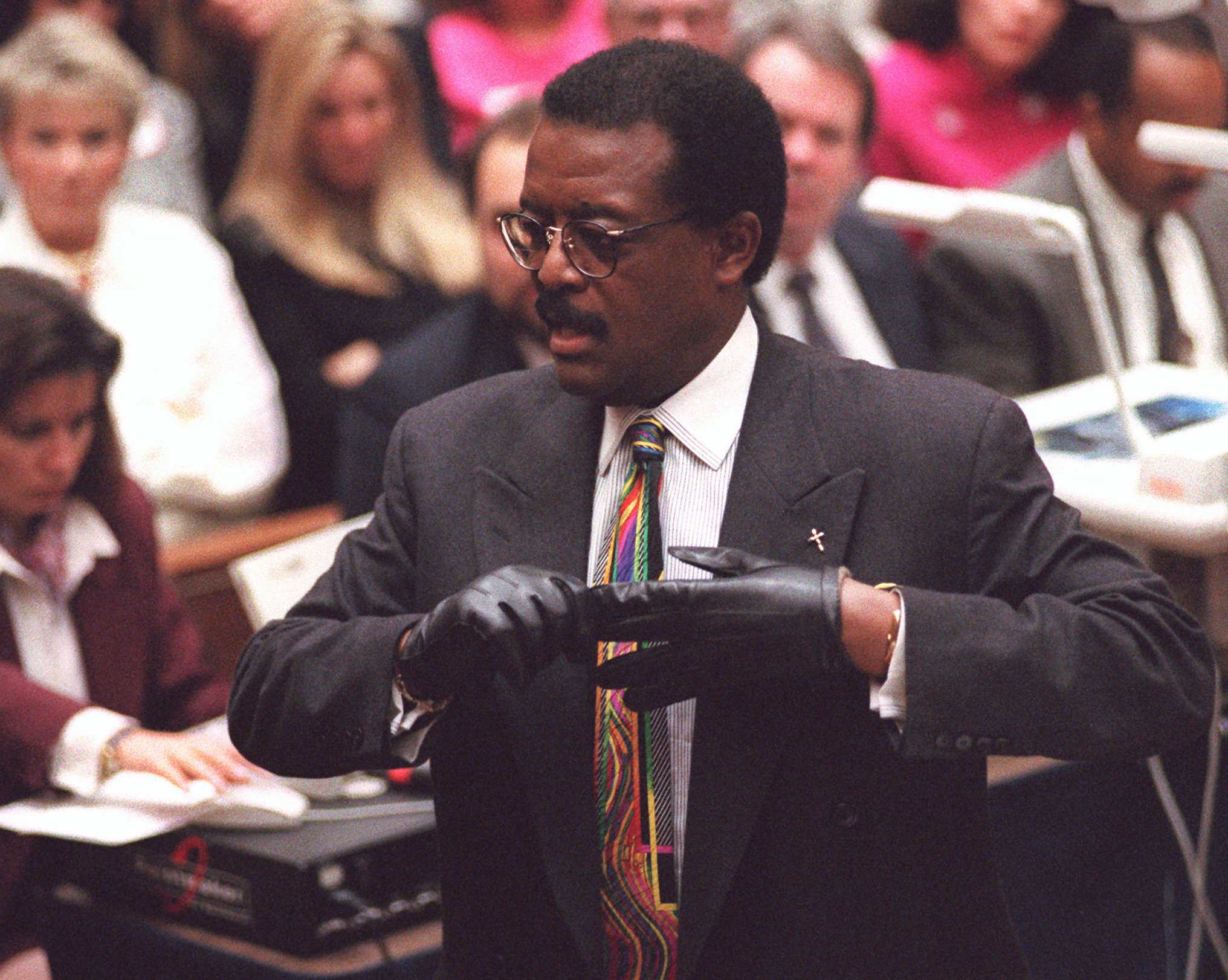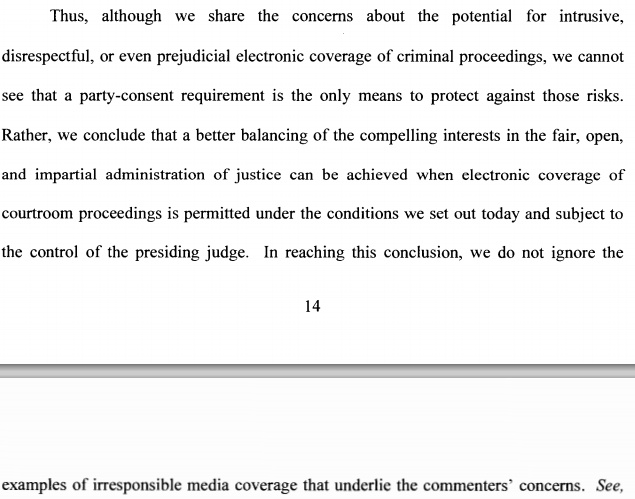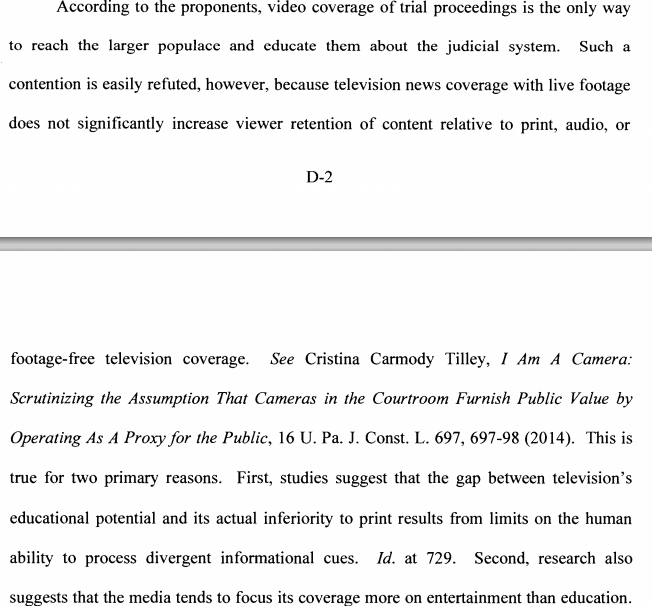
Minnesota may be about to acknowledge, finally, that cameras and microphones in the courtroom do not destroy the legal process.
For years, the state has been dabbling with an experiment that would allow cameras and microphones in court, but there was a hitch — permission to record required that all parties involved approved of the idea and that was often an impossible task.
The grandstanding in the 1995 O.J. Simpson trial didn’t help the media’s cause a bit, as I pointed out in this 2008 post.
Today, however, Minnesota Supreme Court Chief Justice Lori Gildea issued an order for a test period in which microphones and cameras are allowed in court even if a party objects.
But there are several catches that make the plan less than meets the eye.
For one thing, cameras and microphones will still be barred during the trial itself, or at least whenever a jury is present.
No coverage of a victim testifying is allowed without permission of the victim, which wouldn’t happen often anyway considering that testimony in a trial worth covering is usually held before a jury.
No coverage of a trial involving sexual assault or domestic violence is permitted, which seems more than fair and responds to the most often-voice complaint about cameras in court.
This is just the latest round in the media’s fight to open up Minnesota’s courts since the Supreme Court began considering the request in 1982.
Technically, coverage of criminal trials has been allowed since 1983, but for all practical purposes, the rules actually barred any electronic coverage.
In the 30 years of the debate, Justice Gildea wrote today, “the content of the debate has not changed.”
Gildea acknowledged the possibility that electronic coverage could disrupt a trial.
“But irresponsible media coverage is not limited to its electronic form, nor does withholding party consent to electronic coverage of courtroom proceedings prevent prejudicial media coverage,” she said.
Gildea also noted that other states have implemented a more public policy and have not seen a decline in courtroom decorum.
Justice Alan Page disagreed with Gildea’s order, writing in his dissent that there’s little evidence cameras in the courts have any benefit to the public.
“Given the media’s documented treatment of African Americans and other people of color accused of crime, I concluded that expanding the use of cameras would erode the court’s ability to prevent ‘unjustified and mistaken deprivations,'” he said.
Page also criticized the ability of television to educate anyone, saying that studies show people retain more from reading newspapers than TV or radio.
Read the full order, including Page’s dissent, here (.pdf).


